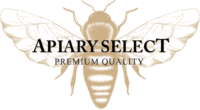Pollinators, particularly bees, are vital to the health of our planet’s ecosystems and to the production of the food we eat. At Apiary Select, nestled in the Blue Ridge Mountains of Washington County, VA, we understand the indispensable role these tiny workers play in our environment and our diets. In this post, we delve into the significance of bees as pollinators, the challenges they face, and how each of us can contribute to their protection and proliferation.
The Essential Work of Bees
Bees are among the most efficient pollinators on Earth, responsible for the cross-pollination that helps at least 30% of the world’s crops and 90% of our wild plants to thrive. When bees collect nectar and pollen from flowers, they transfer pollen grains from one flower to another, fertilizing the plants and allowing them to produce fruits, seeds, and young plants.
This pollination process is not just critical for the beauty of our natural landscapes but also for the production of many nuts, vegetables, and fruits, including crops like almonds, berries, and cucumbers. Without bees, our plates would look significantly emptier and less nutritious. [Five Creative Ways to Incorporate Raw Honey into Your Daily Diet]
Threats Facing Bees
Despite their importance, bees and other pollinators are facing unprecedented threats due to human activities. Habitat destruction, the use of harmful pesticides, climate change, parasites, and disease are some of the significant challenges that reduce bee populations worldwide. The decline of bees signals a broader ecological imbalance that could have severe consequences for agricultural systems and biodiversity.
At Apiary Select, we’re committed to sustainable beekeeping practices that not only produce high-quality honey but also support the health and habitat of bee populations. [Sustainable Beekeeping: From Flower to Jar]
How You Can Help Protect Pollinators
Protecting bees and other pollinators is a shared responsibility that requires action from all of us. Here are some ways you can contribute:
- Plant Pollinator-Friendly Gardens: Even small spaces can make a difference. Planting a variety of flowers, especially those native to your area, can provide essential food and habitat for bees.
- Reduce or Eliminate Pesticide Use: Chemicals commonly used in gardens and agriculture can be harmful to bees. Opting for natural pest control methods helps protect their populations.
- Support Local Beekeepers: Buying local honey and bee products supports the livelihoods of beekeepers who use sustainable practices and contribute to the health of bee populations. [Supporting Local Agriculture: How Choosing Local Honey Benefits Your Community]
- Educate Others: Sharing knowledge about the importance of bees and pollinators increases awareness and can inspire others to take action.
Protecting Bees for a Healthier World
The protection of bees and other pollinators is not just about preserving a single species but about maintaining the health of our entire ecosystem and ensuring food security for future generations. By understanding the crucial role these creatures play and taking steps to protect them, we can ensure a healthier, more vibrant world.
At Apiary Select, every jar of raw honey and every chunk of honeycomb is a testament to the beauty and importance of bees in our ecosystem. By choosing our products, you’re not only enjoying the natural delights of high-quality honey, but you’re also contributing to a larger cause: the sustainability and protection of our precious pollinators.
Join us in celebrating and protecting the bees that grace our planet. Your choices can help to sustain the buzz of life that underpins our natural world.
Thank you for being part of this essential journey towards a more sustainable and pollinator-friendly world.
